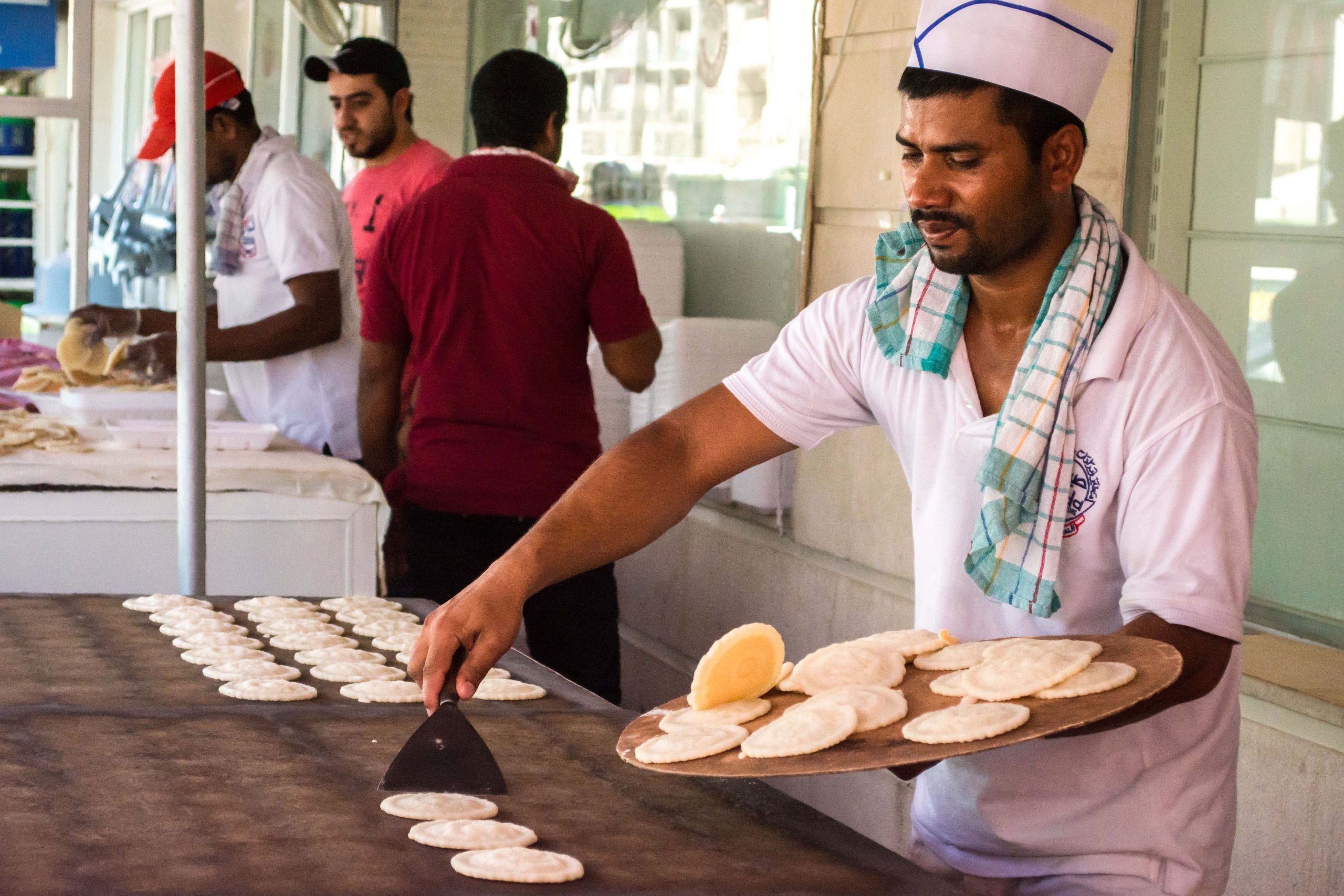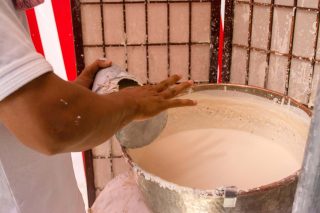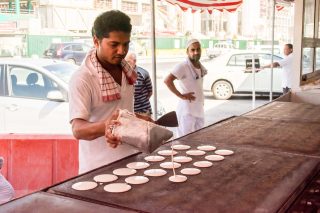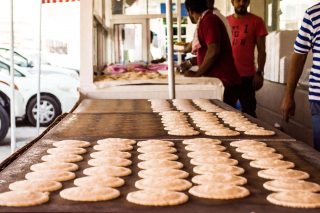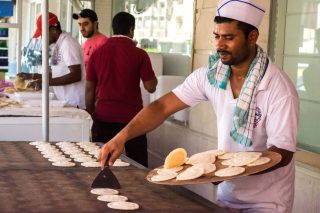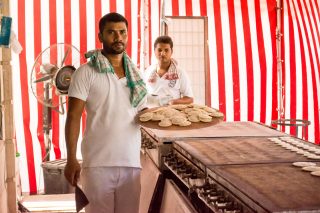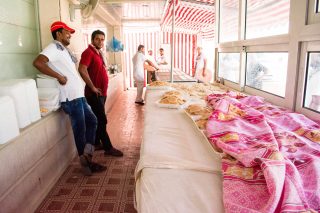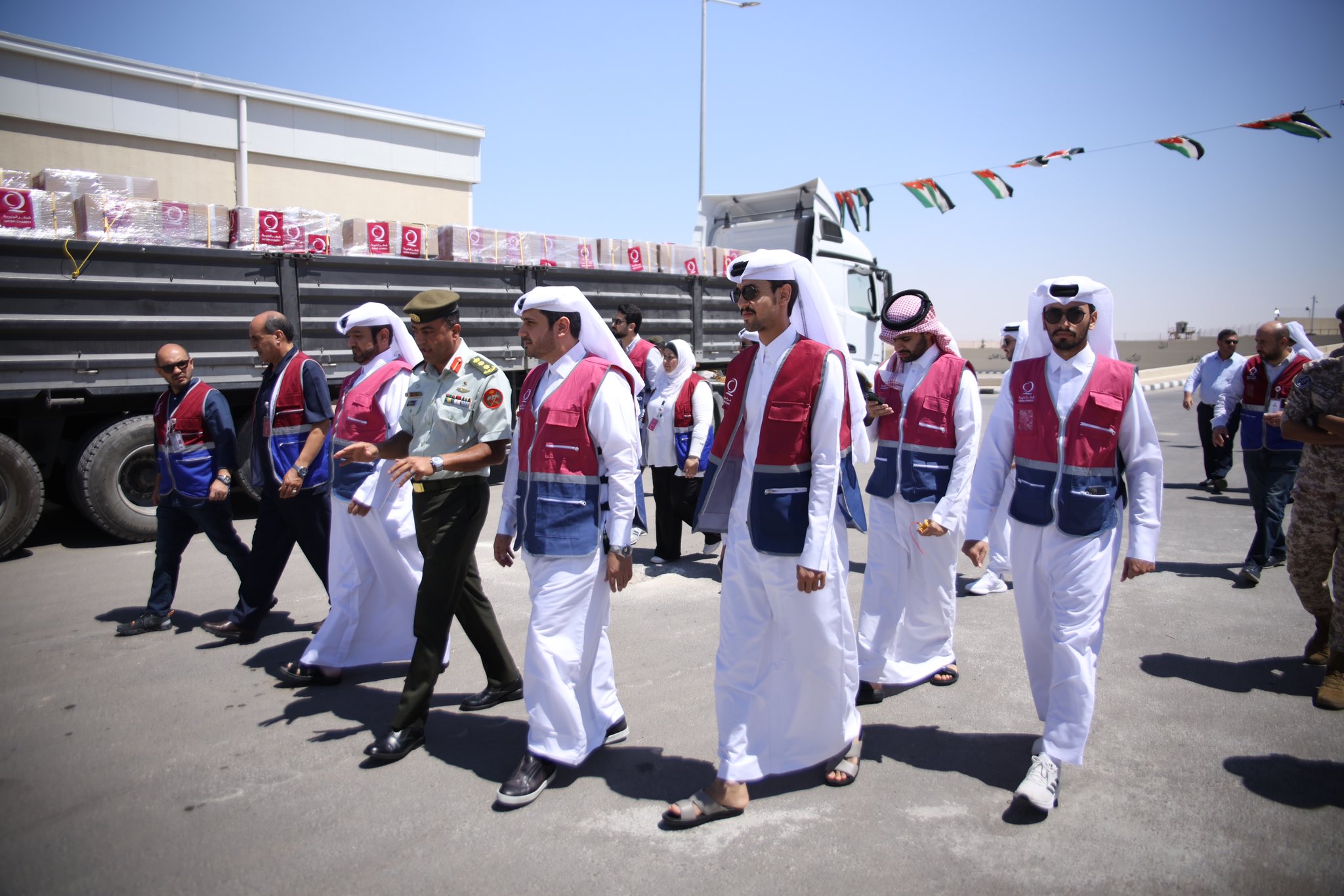All photos by Chantelle D’mello
For the Al Saida Bakery and Stores in downtown Musherib, this Ramadan – like so many others – has been a month of abundance.
While the majority of the country fasted and enjoyed abbreviated working hours for the past several weeks, the bakers at Al Saida have been working at top speed to prepare hundreds of their famed kataif pancakes for hungry customers daily.
Kataif, a pancake-like dessert that consists of flour, water and other ingredients, has been a local Ramadan staple since the bakery opened 56 years ago.
To keep up with the massive demand, Al Saida bakers start preparing the kataif at 7am, continuing to produce a steady flow of piping hot mini pancakes until late evening.
Speaking to Doha News, Samer Maqsoud, a business partner at Al Saida and relative of the owner, said:
“We are known for our kataifs. Aside from our direct customers, around 80 percent of sweet shops in Doha sell our kataifs. During the year, we take orders for kataif twice a week – Mondays, and Thursdays, but in Ramadan, because it is a traditional sweet, we make them every day.”
All in the family
The bakery is a family business. First opened in Doha by the late Mahmoud Ahmed Al Nadaf, a Lebanese expat, the bakery is now owned by his brother-in-law and nephew, Abdullatif Al Nadaf.

The elderly man, who is nostalgic and incredibly energetic, is a regular at the open-air kitchen, set up especially to make kataifs outside the bakery.
“For him, this is his pleasure. We come out sometimes, and he’s here in the heat serving customers. As long as he sees a smile on their face, it makes his day,” said Mohammed Khalil, an employee at the bakery.
For Al Nadaf, Qatar is home.
“We came here when there was no AC, nothing. All we had was fans,” said Al Nadaf, gesturing to the roof. “We watched (Qatar) grow.”
While a part of Qatari society and history, the Al Saida bakery has its roots in Lebanon, where the shop was handed down from generation to generation.
The shop takes its name from Sidon (Saida in Arabic), the third largest city in Lebanon, and one of the oldest cities in the world.
Other business
Aside from kataifs and other Arabic sweets, the bakery also operates as a grocery store and wholesale supplier, specializing in dry foods like lentils and beans, spices and dairy products that aren’t found locally.
The store also imports olives and olive oil from Lebanon.
“We try to ensure maximum quality,” said Maqsoud, who handles the supply business side of Al Saida. “We bring in great tasting goods from suppliers who have worked with us for hundreds of years.”
Among them is a Czechoslovakian dairy facility that produces a specific type of akkawi cheese used as filling for the kataif.
According to Maqsoud, Al Saida also supplies Czech cheese, Lebanese lentils and olive oil to over 70 hotels in Qatar.
“I think it’s the first store of it’s kind in Qatar, where we have a bakery, a grocery, and a wholesale supplier all in one,” he added.
The store also imports products from Syria and Palestine, but the ongoing conflicts there have made the process difficult.
“We sell our goods at a higher price, but that’s because of the quality of our ingredients and….the trouble involved in getting it delivered and made. After the Arab Spring, things got hard. It’s a lot more labour-intensive to get these goods imported,” Khalil said.
By the numbers
However, the kataifs are still the bakery’s main selling point, drawing over 500 customers daily.
On an average, the bakery sells from 500 to 800kg of the pancakes every day.
They are either sold plain, to be filled at home by the customer, or freshly prepared with a filling of nuts, coconut shavings, or cheese. They are then baked or fried.
The process includes creating a watery batter, which is placed in a large metal bowl by the side of the cooking station outside the bakery.
While the ingredients of the batter are a well-kept family secret, they do include a special blend of two flours imported from Lebanon, and a mineral-infused version of local water.
The batter is then spooned into a canister with an attached funnel, and then poured rapidly on large rectangular hot plates, where the kataif are only cooked on one side for a few minutes.
When ready, they are transferred off the stove with a spatula.
Once done, they are set aside or in boxes for eager customers waiting in their cars, or outside the store.
According to Al Nadaf, the kataif stay fresh for more than 24 hours. “But if you freeze them, they can stay for up to four months,” he added.
Thoughts?

